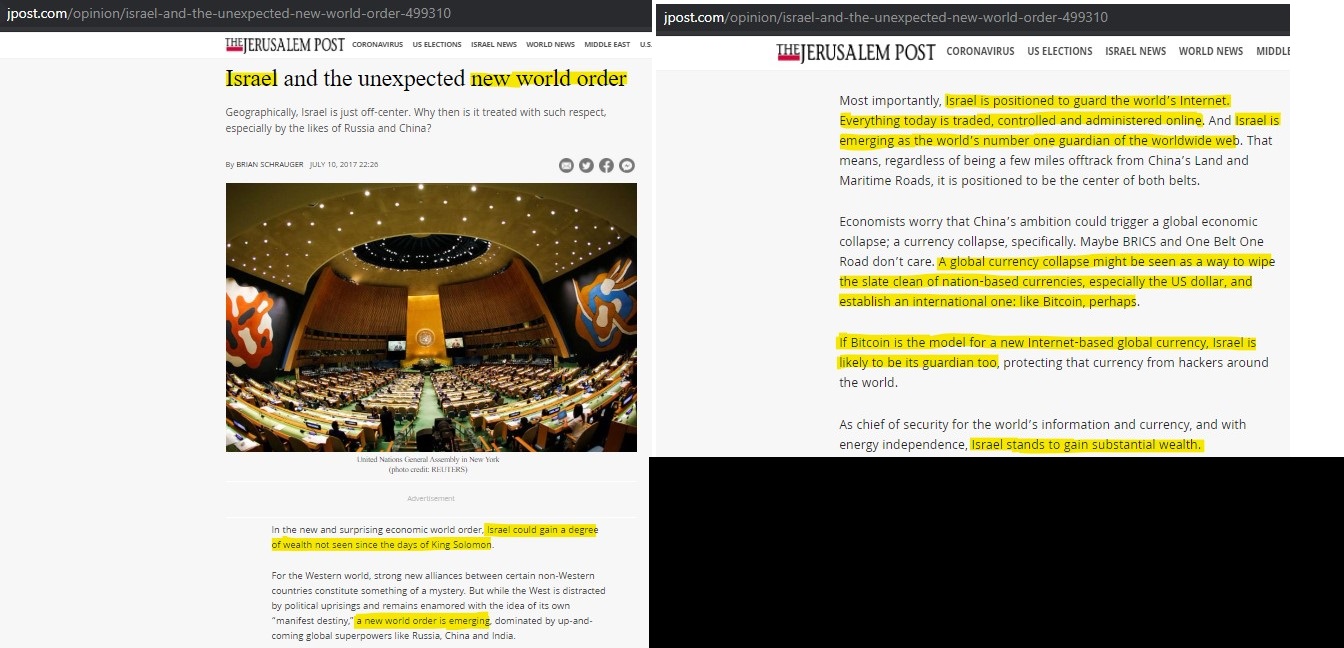https://www.weforum.org/agenda/2020/01/ ... -payments/If you visit China today, however, there’s a strong chance you’ll see people paying for things using facial recognition on their phones.
This is a radical shift, but it’s just the beginning of the cash revolution.
The new global payments ecosystem, including both physical cash as well as mobile wallets, is the result of the convergence of three large and powerful industries: telecommunications, banking and retail.
And if the private and public sector can work together to harness the latest technology and realise the full potential of a cashless society, there will be enormous benefits.
Eliminate the middleman, close the financial inclusion gap
It’s important to first reflect upon where we are on the journey toward a cashless society.
Thus far, the shift is basically a move from physical cash to cash-replacements. With private companies involved in processing those transactions, there is inevitably a cost. And that means there is a loss of value when the transfer occurs.
This is my vision of a true cashless society. There is an exchange of value in its entirety – just like cash. And it requires a national government – rather than banks or the like – to act as the payment provider, effectively becoming a state-backed utility.
The savings from avoiding the processing costs could then be used to benefit those in need, such as by being transferred to a fund to rejuvenate economically depressed areas, as one example.
This might sound counterintuitive, but I would argue just about everyone has access to capital. However, for the poorer members of society, there’s often a prohibitively high cost to accessing it. If you have a great business idea but can’t afford start-up capital, then your venture is unlikely to get off the ground.
A cashless society – along with the transformation of the last mile of money transfers, payments and banking services – will help to close the financial inclusion gap.
Cashless technologies could be some of our greatest assets in the fight against corruption and organised crime, too.
And, once again, the people who stand to benefit most are those who are most in need.
There are 1.4 billion people in the world who have to make do with less than $1.25 a day. At the same time, around $1.26 trillion is effectively stolen from developing countries, due to corruption, bribery, theft and tax evasion. If we could reclaim that money for those countries, we could lift those 1.4 billion people above the poverty threshold and keep them there for at least six years.
If everyone were connected to an end-to-end e-payment infrastructure – a cashless environment – there would be transparency in money flows. Whether it’s international aid or private investment, if everyone in the chain were connected digitally, you could see where the money went and how it was spent.
Any sums appearing outside of that framework could immediately be flagged and investigated. This would narrow the focus for law enforcement and forensic accountants, making it easier to target and recoup hidden money.
The enabling factors
There are, of course, many challenges to overcome as we embrace this level of disruption. And governments will need to take preemptive and proactive action in areas such as identity management and the protection of security and privacy.
However, the underlying support structures to make it all possible – the building blocks, or e-plumbing – are already in place. We already have secure, enabled ecosystems and the next generation of infrastructure.
At Finablr, we have four decades of experience in regulatory alignment and cross-border compliance, with a network spanning 170 countries. We also have proprietary technology, which enabled 150 million transactions at a total value of $115 billion in 2018 alone.
There’s no going back – which means we need to face the risks and deal with some of the difficulties of going cashless in order to unlock the benefits.
In developed countries, a cashless society will deliver transactions that are seamless, frictionless and low-cost. And in developing nations, it could deliver life-changing socio-economic benefits.
This easily accessible exchange of value will create a more equal world, and strengthen the bond between people, regardless of where they live.
So, what's so bad about it? A cashless society implies digital money. Cash has the benefit of being untraceable. Digital currency means your account can be hacked, your transactions are traced, taxes are unavoidable and your account can be shut down in full Chinese-social-credit-style. They know who has guns (and automatically ban people from buying guns if they're deemed "white supremacists"), what means of transport they use (therefore; where they are at the moment), it is a tracking system and all of your money will be in the hands of whoever controls the system (in this case, the government. Politicians). Closing the "financial inclusion gap" means everybody will have a bank account. One world currency implies one world central bank. Whoever controls that bank controls the economy of the entire world. Printing money would have very little impact on the world economy, which would allow for politicians to have infinite money. There would be no competing currency, so no one would shift to another one; allowing the politician to print as much as needed.
It is implied that this cashless system will act as an international currency. If it's meant to be backed by the government... What does that imply? A world government. The idea is to bring about the changes which in turn would create the need for the world government.
In their own words:




PREDICTION: They'll tell you we need to get rid of cash to protect ourselves from pandemics. In fact, they're already saying it (https://duckduckgo.com/?q=cash+pandemics&ia=web), but you'll hear it more often on the news. Also "muh environment".


